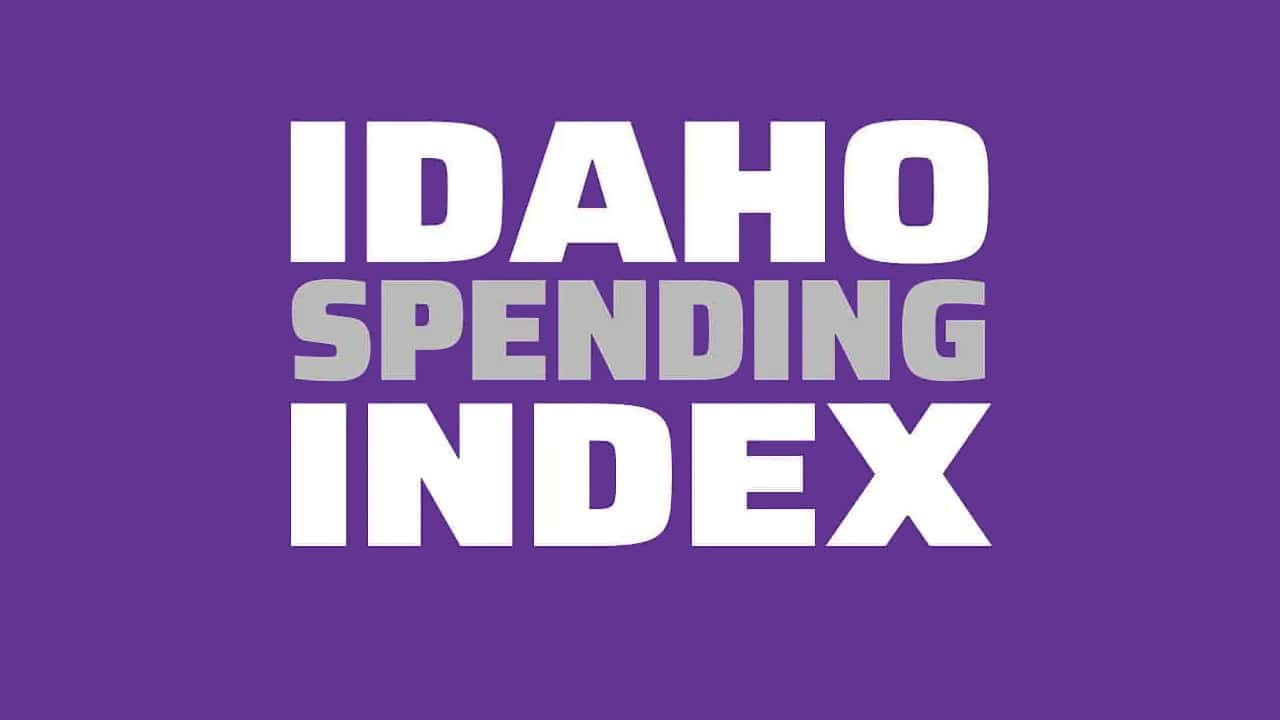


The Idaho Spending Index serves to provide a fiscally conservative perspective on state budgeting while providing an unbiased measurement of how Idaho lawmakers apply these values to their voting behavior on appropriations bills. Each bill is analyzed within the context of the metrics below. They receive one (+1) point for each metric that is satisfied by freedom-focused policymaking and lose one (-1) point for each instance in which the inverse is true. The sum of these points composes the score for the bill.
Analyst: Niklas Kleinworth
Rating: -3
Bill Description: Senate Bill 1445 appropriates $192,978,100 and 613.50 full-time positions to the Department of Health and Welfare, Division of Welfare for fiscal year 2025. There are also two supplemental appropriations for fiscal year 2024.
Does this budget enact powers and activities that extend beyond the proper role of government? Conversely, does this budget fulfill the proper role of government?
This legislation appropriates $1,090,600 to support the Summer EBT (food stamp) program. This program would provide funds to cover food purchases for school-aged children over the summer months. This appropriation only pays for the administrative costs of the program. There is a companion budget request for this program in the Department of Education budget for $99,400.
The federal funding for benefits costs within the program are passed through the Division of Welfare and not subject to appropriation. The total expected cost of this welfare program is $17,510,000.
This was originally a temporary program to mitigate the effects of the COVID pandemic. This appropriation sustains this program beyond the scope of its original timeline. Though this year’s appropriation is allocated as a one-time expense, this first year would create dependency among families, which could be used to justify the perpetuation of the program.
The Summer EBT program is also not designed to serve the needy. School-age children would qualify for this program if they meet eligibility requirements for food stamps or free and reduced priced lunch. If just 25% of students in a school district qualify, then all remaining students would be automatically eligible, regardless of their income.
This program generates dependency and exists squarely outside the proper role of government. This program has the potential to hook families on government assistance regardless of their means. It wrongly places the government in the role of caretaker for Idaho children.
(-1)
Does this budget incur any wasteful spending among discretionary funds, including new line items? Conversely, does this budget contain any provisions that serve to reduce spending where possible (i.e. base reductions, debt reconciliation, etc.)?
This legislation provides $11,495,200 ongoing subsidies to Idaho’s child care industry. This program would provide government-funded childcare for families to “maintain employment or complete their education.” This is entirely federal funding from the Child Care Development Block Grant.
This is a wasteful expansion of government handouts. This additional funding makes child care less affordable as it artificially increases demand and floods the market with funding. This fails to solve the problem with affordable child care, exacerbating the problem and increasing the Idahoans’ government dependency.
(-1)
Is the maintenance budget inappropriate for the needs of the state, the size of the agency, or the inflationary environment of the economy? Conversely, is the maintenance budget appropriate given the needs of the state and economic pressures?
This legislation confirms the program maintenance budget for the Division of Welfare of $177,466,600, growing it from the base by 7.0% over the last three years. This rate is slower than the rate of inflation over the same period, demonstrating modest growth in the cost to maintain the agency.
(+1)
Does this budget perpetuate or expand state dependence on federal dollars, thereby violating principles of federalism? Conversely, does this budget actively reduce the amount of federal dollars used to balance this budget?
This legislation appropriates nearly $140 million dollars in federal funding to the Division of Welfare, or 72.8% of the total appropriation for the 2025 fiscal year. This department administers many federally controlled welfare programs within the state. The agency is substantially dependent on federal funding to sustain its programs and operations.
(-1)
Does this budget contain hidden fund transfers or supplemental expenditures that work to enact new policy or are not valid emergency expenditures? Conversely, are fund transfers only made to stabilization funds or are supplemental requests only made in the interest of resolving valid fiscal emergencies?
This legislation includes two supplemental requests for the 2024 fiscal year. The first is a $1,082,500 transfer from personnel costs to operating expenditures. The purpose is to cover the cost of the eligibility verification system. The agency projected a shortage of funding for the 2024 fiscal year due to its inability to transfer personnel costs to other expense classes. Though this request uses existing funds to support this unforeseen expense, the agency should not rely on open staff positions as a deficiency fund that collects annual interest payments in the form of the statewide change in employee compensation.
The second request adds nearly $4.3 million in one-time federal funds to support the Low Income Energy Assistance Program (LIHEAP). This program is an entitlement that leverages federal funds to cover the cost of utilities for eligible families. This funding would be in addition to the $19.8 million built into the base.
Not only is the LIHEAP program outside the proper role of government — and burdensome for working families — but this is an inappropriate use of a supplemental request. These expenditures were not unforeseen and fail to qualify as an emergency.
(-1)


